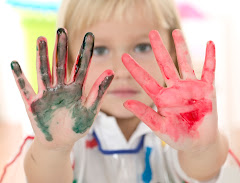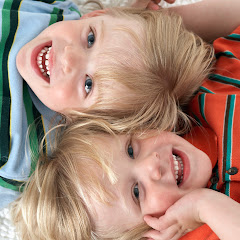Did you ever admire the traits of a friend while, dismissing your own good qualities? "I'm Not." by Pam Smallcomb is the perfect reminder that we all have something to contribute to a relationship. I'm sure you can think of one friend who is almost perfect. You know the ones who always are doing the things we wish we could do or whose hair is always in place. The character in this story has just such a friend. Evelyn is so good at so many things. She is not ordinary, she is a little mysterious, and she is a snappy dresser. The one thing Evelyn needs is a best friend. Our character in the story soon realizes there are many things she can do that Evelyn cannot and most importantly she knows she can be Evelyn's best friend.
"I'm Not." is full of many endearing and humorous illustrations, but the thing I like best is that some of the characteristics that are envied may not always be positive. Evelyn gets in trouble at school by making a statue of the principal from bubble gum. Her friend ignores the negative and notes that Evelyn is a good artist. Friends do that sometimes, focusing on the positive in a friend rather than criticizing. I think this opens the way for some thoughtful discussions.
Both my 3 year old and 7 year old grandson enjoyed this story. I'm sure the youngest did not get all of the meaning, but he laughed at the pictures and asked for it to be read again. When I changed Evelyn's name to the name of his brother, he almost immediately asked if the other character was Noble, his brother's best friend. This told me that he understood the relationship of the characters. Because there is so much to see in the pictures, it is best shared one on one or in small groups.
A valuable follow up activity would be to pair children with others and have make their own book. It would be a great way for a new group of 1st graders to get to know each other. Take some time each day to make a page with a new friend. They would all learn positive things about classmates and themselves. For younger children you might want to concentrate on each child's positive attributes. You could also do it in relationship with a parent. "Mommy is a great reader. I'm not." You could talk about how things change and that they too will be a great reader one day. They may even discover some things they are great at, which grown-ups aren't. That is always fun for kids!

